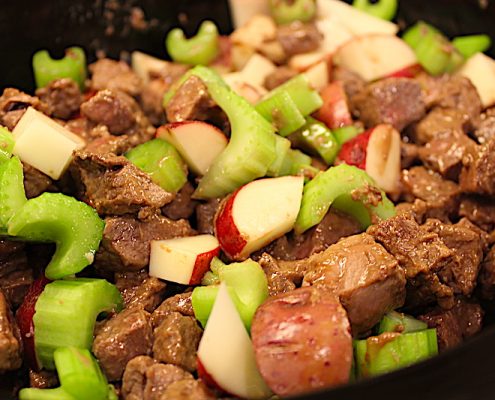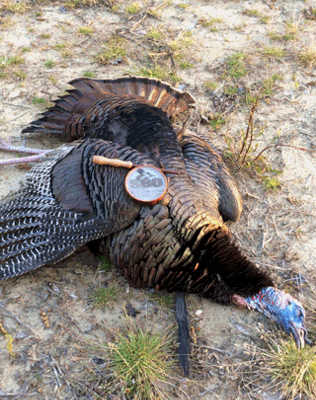How to Condition a Pot Call
There’s no feeling quite like the one when you open a brand new toy. It’s shiny and clean, no defects or anything. When that toy is a new pot call, however, your first job is to scratch it up! To mimic the wide variety of sounds of the wild turkey, you need to condition a pot call appropriately. In this video, Dave Jordan, co-founder of Southbound Outdoors, shows you how to properly condition the three different playing surfaces offered on SBO pot calls.
Conditioning a Glass Surface
The frosted glass surface on the SBO Ripper pot call usually doesn’t require much conditioning. The surface is naturally rough and scratchy, giving you some nice yelps and clucks right out of the box. To get the best sound, and really good purrs, you will need to condition it slightly.
Taking a piece of sandpaper or a conditioning stone, lightly rub the surface of the call back and forth in a consistent direction. You should be rubbing lines into the call surface perpendicular to the direction you will be pulling your striker. Use the edge of a piece of sandpaper as opposed to the middle. The edge of the sandpaper will give you more defined lines in the pot call surface, producing a much better purr sound.
Conditioning a Slate Surface
The slate surface on the SBO Ripper pot call will require very little conditioning. The surface is naturally rough and scratchy, giving you some nice yelps and clucks right out of the box. To get the best sound, and really good purrs, you will need to condition it slightly.
To condition a pot call with a slate surface, use a piece of scuff pad. Lightly rub the surface of the call back and forth in a consistent direction. You will notice the slate in the area you are scuffing begin to take on a lighter appearance as you rough it up. Drag your striker across it every so often and test the sound, scuffing until you get those nice crisp purrs and clucks and mellow yelps. Sandpaper is usually not needed on slate, the scuff pad is more than sufficient.
Conditioning a Ceramic Surface
The ceramic surface we offer on the SBO Ripper pot call is a very hard playing surface. It takes some work to condition properly. However, once you get the lines cut into the surface, it will hold a good conditioning for a long time.
To condition a pot call with a ceramic playing surface, you will need to use a conditioning stone. Sandpaper just doesn’t seem to work on the extremely hard material. Rub the stone back and forth in a consistent direction. You should be rubbing lines into the call surface perpendicular to the direction you will be pulling your striker. On a ceramic surface, you can sometimes see the individual lines being cut into the surface. Try to get many lines really close together, giving your striker a great series of cuts to bounce across for great yelps and purrs. Continue with the stone until you are satisfied, and then hit it with sandpaper a few times to even it all out a bit.
Conditioning the Bottom Surface
The bottom surface of the SBO Ripper is made of slate. This surface does not require much conditioning, as it is naturally scratchy and should sound very good straight out of the box. If you do feel the need to condition it, take a tiny square of scuff pad and place down in the hole. Use a striker or other small item to scratch the scuff pad around to rough up the slate surface.
Conditioning the Striker
It’s important to rough up the tip of your striker, or peg, every once in a while. The rough end grain on the wood tip of the striker is the key to making it work correctly. After some use, the rough end grains can get worn down. Take sandpaper and wrap it around the tip of the striker. Twist the striker inside the sandpaper such that the outer edges of the bottom of the striker tip are getting roughed up by the sandpaper. Twist the striker a few times, then try it out on the pot call. Sometimes it helps to hit a lick or two on a scuff pad after the sandpaper to help even out the wood grain, giving a more consistent sound profile.
*Note – it is especially important to scratch up your striker tip if it gets wet or dirty. Water and mud will slick up the striker tip, causing it to not bounce across the playing surface properly. Always carry a small piece of sandpaper or scuff pad with you in the field just in case your striker gets compromised while out hunting.




